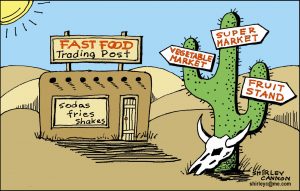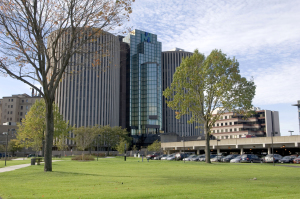By Joshua Beltran, Research Assistant, Center for Health Equity Engagement Education and Research
There are numerous aspects of our lives that have had to be adjusted with the quarantine in effect. One major one is how we safely obtain and consume food. While some have “braved the storm” and taken risky trips to the grocery store, many rely on take-out and delivery services. A recent WVIZ PBS Ideastream broadcast provided some safety tips when utilizing takeout services, things such as using your own silverware and disposing of containers. However, the article linked with the broadcast had some information that stuck out to me and caused me to ponder about the health disparities that are occurring as a result. In the article it mentions that by utilizing these services, especially for local businesses, can be a beneficial way to keep money flowing into the economy. This is a pretty basic economic principle; money needs to be spent in order for the economy to keep running. When it’s not and people hold on to their money, the economy suffers. Low socio-economic communities are already facing disparities with the pandemic, dealing with things from job loss to medical costs. However, another aspect that needs to be addressed is money and food and the disparity it can cause in these already disadvantaged communities.

For those who are already struggling to put food on the table without a pandemic running rampant, the quarantine puts an even larger strain on the process. If a family faces healthy disparities by not being properly nourished due to low income or food deserts, relying on take-out and delivery services is not an option. If an entire community is in the same situation the local economy is affected at large. My major concern is that due to the current situation a disparity cycle is forming. Families, who are already are facing health disparities based on location and socio-economic status, have to either dip further into their budget to safely obtain food or run the risk of going to the stores. Stores that are probably crowded as is because many families in an area are facing the same issues. Additionally, by opting not to order food from local restaurants they hurt their local businesses both in the short and long term. If the local businesses aren’t making money, they won’t stay open which impacts that community’s economy possibly creating further health disparities.

